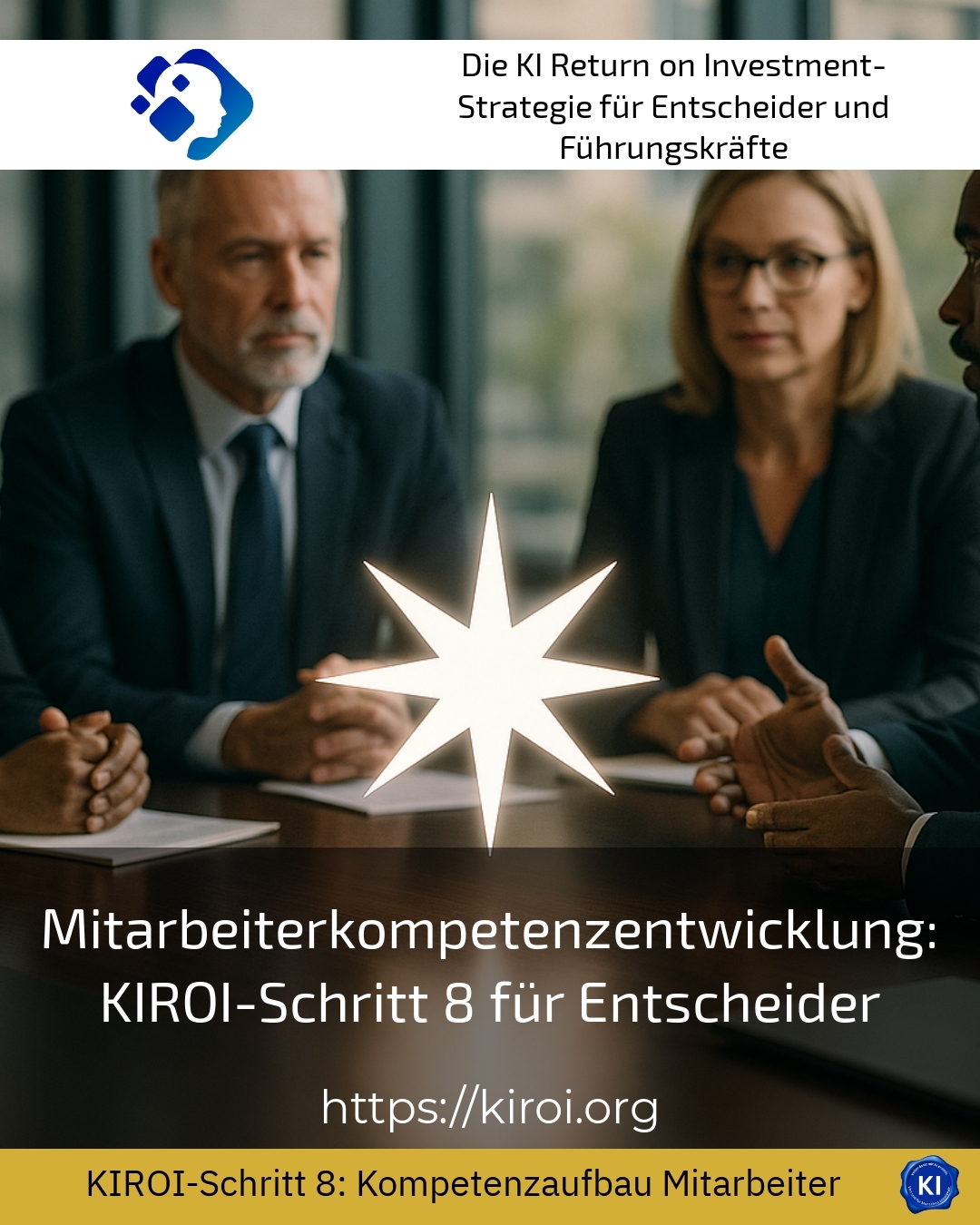Employee competence development** represents a key challenge for companies and at the same time a decisive opportunity. The eighth step of the KIROI model in particular helps decision-makers to organise this complex development process in a structured and effective way. This blog article presents practical approaches, concrete examples and tried-and-tested methods that show how company management can sustainably promote the development of employee competences.
Employee skills development: fundamentals and added value for decision-makers
The term employee competence development refers to the targeted promotion of employees' professional, methodological and social skills. It is essential for decision-makers to understand this process as a long-term investment in competitiveness. Employee competences should not only be expanded, but also integrated into everyday working life and applied in specific projects.
Companies from a wide range of sectors report on how job rotation in the manufacturing industry, for example, enables employees to react flexibly to changing production requirements. In the healthcare sector, case-based workshops increase understanding of complex patient situations. In the IT sector, innovation workshops create space for the acquisition of agile methods and new technologies. These initiatives show that practice-orientated learning and interactive coaching effectively advance employee skills development.
KIROI step 8: Structured support for skills development
The eighth step in the KIROI model focusses on targeted skills development. Decision-makers receive practice-orientated tools with which they can support the development of their employees. A combination of several learning formats that have proven themselves in practice is recommended:
- Training on the job: Employees learn directly on the job, for example from experienced colleagues or through project work.
- Training near the job: Theoretical content is taught in the company's own seminar rooms to ensure practical relevance.
- Training off the job: External seminars and online courses broaden the professional and methodological horizon.
Accompanying coaching plays an important role. Individual coaching sessions help to recognise personal strengths, overcome challenges and unfold development potential. In this way, skills development is promoted precisely where it is needed most.
BEST PRACTICE with one customer (name hidden due to NDA contract) A mentoring programme combined with on-the-job training was introduced in a medium-sized technology company. Employees report back that this practical support has noticeably increased their methodological expertise and that they are now able to solve complex tasks more independently.
Practical examples and a variety of methods from everyday life in the industry
In the service industry, for example, regular team reflection sessions are used to improve social skills and cooperation. In retail, flexible e-learning platforms promote self-directed skills development that adapts to individual learning needs. In production, job rotation shows how employee knowledge is broadened and adaptability strengthened.
In addition to traditional training methods, the integration of artificial intelligence is becoming increasingly important. AI-supported learning programmes offer personalised recommendations and help to make learning progress transparent. This means that employee skills development can be supported in a more targeted and efficient manner.
Recommendations for decision-makers to promote employee skills development
Decision-makers should create a culture that promotes learning and recognises development as a continuous process. The following impulses support this:
- Targeted skills analyses to determine current and future development needs.
- Individual learning paths that are tailored to the strengths and challenges of employees.
- Regular reflection by means of coaching in order to recognise and adapt progress and obstacles.
- Promoting the exchange of experience through peer groups, masterminds or case studies.
- Integration of digital tools to enable learning independent of time and place.
In challenging change processes, KIROI Coaching supports managers in incorporating different perspectives and reacting flexibly to learning needs. This results in sustainable learning successes that strengthen the company's competitiveness.
My analysis
Employee skills development is a multi-faceted task for which KIROI Step 8 for decision-makers provides tried-and-tested guidance. It has been shown that a structured combination of practical learning, personal coaching and targeted further training units creates the best conditions for building competences effectively. Continuous reflection and open dialogue are crucial here. Companies that actively support these processes can rely on a flexible workforce that is willing to learn and thus survive on the market in the long term.
Further links from the text above:
Employee development with KIROI: Step 8 - Building competences
KIROI step 8: Building employee expertise for decision-makers
Skills development: definition + successful examples
Skills development: importance and methods
Mastering employee development: KIROI step 8 for managers
For more information and if you have any questions, please contact Contact us or read more blog posts on the topic Artificial intelligence here.















